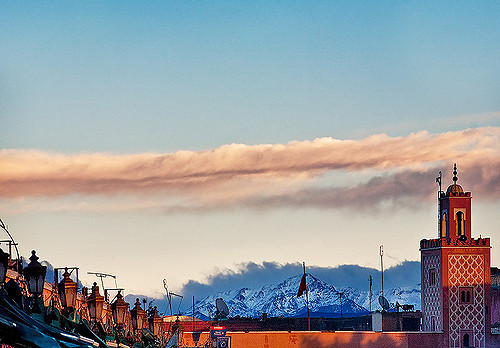In Translation: The case against democratic transition
/Conservatism – as in a propensity for caution in politics, not necessarily the Islamist or traditionalist kind – is making a comeback of sorts in the Arab world. The devastated post-“Spring” landscape of the region, the conflict and chronic instability many countries face (Syria, Yemen, Libya) and the reassertion of authoritarianism in two countries that went through major upheavals (Egypt, Bahrain) and those that avoided them (Algeria, Morocco, in a different ways most GCC countries) has made many citizens very weary of contesting the powers-that-be with the same enthusiasm they might have in 2011. It is certainly a sentiment I come across often in Morocco, where I live.
Parliamentary elections will take place in Morocco on 7 October, and in anticipation the normally sleepy national political debate is heating up. The party that leads the outgoing government, the Justice and Development Party (PJD by its French acronym), is making much of both its modest record and is promising to take on the regime more forcefully if re-elected. The question of whether or not Morocco has experienced an authoritarian comeback in the last few years – a kind of revenge against the protest movement of 2011, civil society and political parties has taken place; it might be most aptly described by that favourite academic non-sequitur, "semi-authoritarian" – is heatedly discussed. The PJD and some of its allies, having spent (in the eyes of their critics) timidly nibbling on whatever crumbs of power that the regime of King Mohammed VI would allow them, is promoting to assert itself in the name of democracy.
Read More







